”There is no beauty in the finest cloth
if it makes hunger and unhappiness“
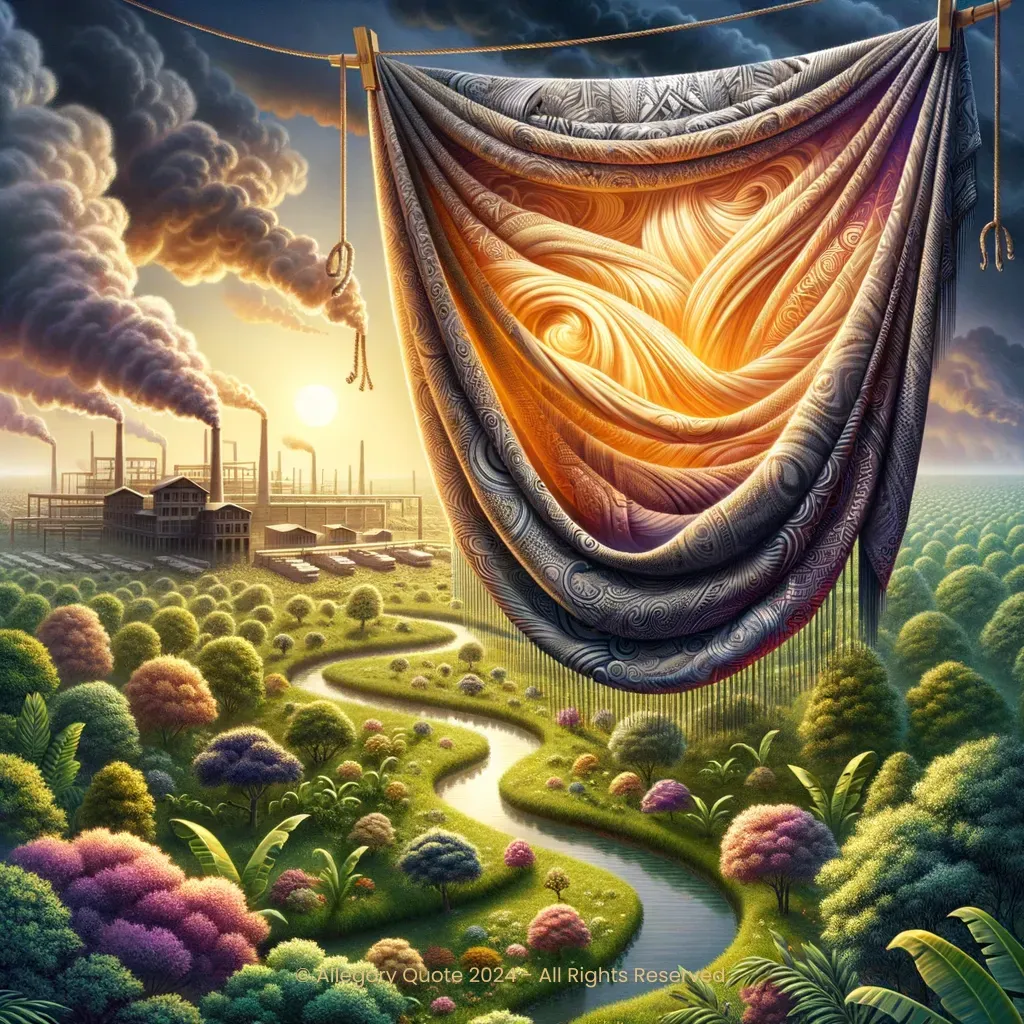
0
0
0
0
- Meaning
- The meaning of this phrase critiques the value we place on material possessions when their production or acquisition causes suffering and distress. Gandhi promotes the idea that true beauty lies in harmony, ethical practices, and well-being, rather than in the appearance or luxury of an item. Essentially, it underscores the importance of the ethical considerations behind the things we value aesthetically.
- Allegory
- The image of the elegant cloth with intricate patterns symbolizes the superficial beauty of material possessions. The hidden figure of a suffering person within the weave of the cloth draws attention to the often-unseen human cost behind luxuries. The lush, happy environment around the cloth represents the ideal state of ethical beauty where well-being thrives. The contrasting industrial factory in the background highlights the reality of unethical practices contributing to the creation of material goods. This visual representation underscores Gandhi's message that true beauty cannot exist amidst suffering and exploitation.
- Applicability
- This phrase can remind people to reflect on the ethical and societal impact of their consumption habits. By considering the origins and implications of what we purchase, from fashion to other industries, we can strive to make choices that do not contribute to exploitation or harm. It encourages mindful living and the pursuit of happiness that does not come at the expense of others.
- Impact
- This phrase by Gandhi has significantly impacted ethical and sustainable movements in various industries including fashion, advocating for fair trade practices and the humane treatment of workers. It is often cited in discussions about ethical consumerism and the importance of considering the human cost behind goods and services.
- Historical Context
- Mahatma Gandhi likely coined this phrase during his lifetime between the late 19th and mid-20th century, a period marked by India's struggle for independence from British rule. Gandhi’s advocacy for simple living and self-sufficiency, particularly through initiatives like the Swadeshi movement, which promoted the use of domestically produced goods, is reflective in this statement.
- Criticisms
- Critics may argue that the phrase simplifies complex economic and social issues. While it is idealistic to assert that ethics should always trump aesthetics, opponents might point out that sometimes compromise is necessary to balance economic growth and social welfare. Others might feel that the statement lacks practical guidance on achieving such balance.
- Variations
- Variations of this phrase focus on different aspects of ethical consumption and simplicity. In many cultures, proverbs and sayings highlight the importance of ethical living over material wealth. For example, in the Russian proverb "A clear conscience is a soft pillow," the emphasis is on the peace and well-being that come from ethical actions rather than wealth or luxury.
-
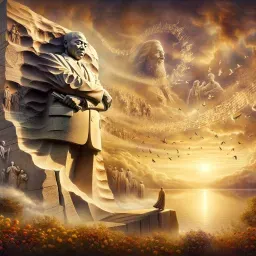
What we do in life echoes in eternity.
-
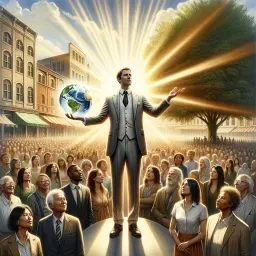
The public service is a public trust.
-

Greed is good.
-
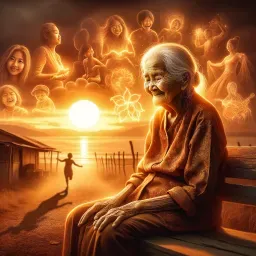
Wrinkles should merely indicate where smiles have been.
-

We must be the great arsenal of democracy.
-

Genius is one percent inspiration, ninety-nine percent perspiration.
-

If you tell the truth, you don't have to remember anything.
-

As easy as pie.
-
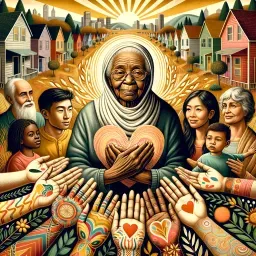
The true measure of any society can be found in how it treats its most vulnerable members.
No Comments